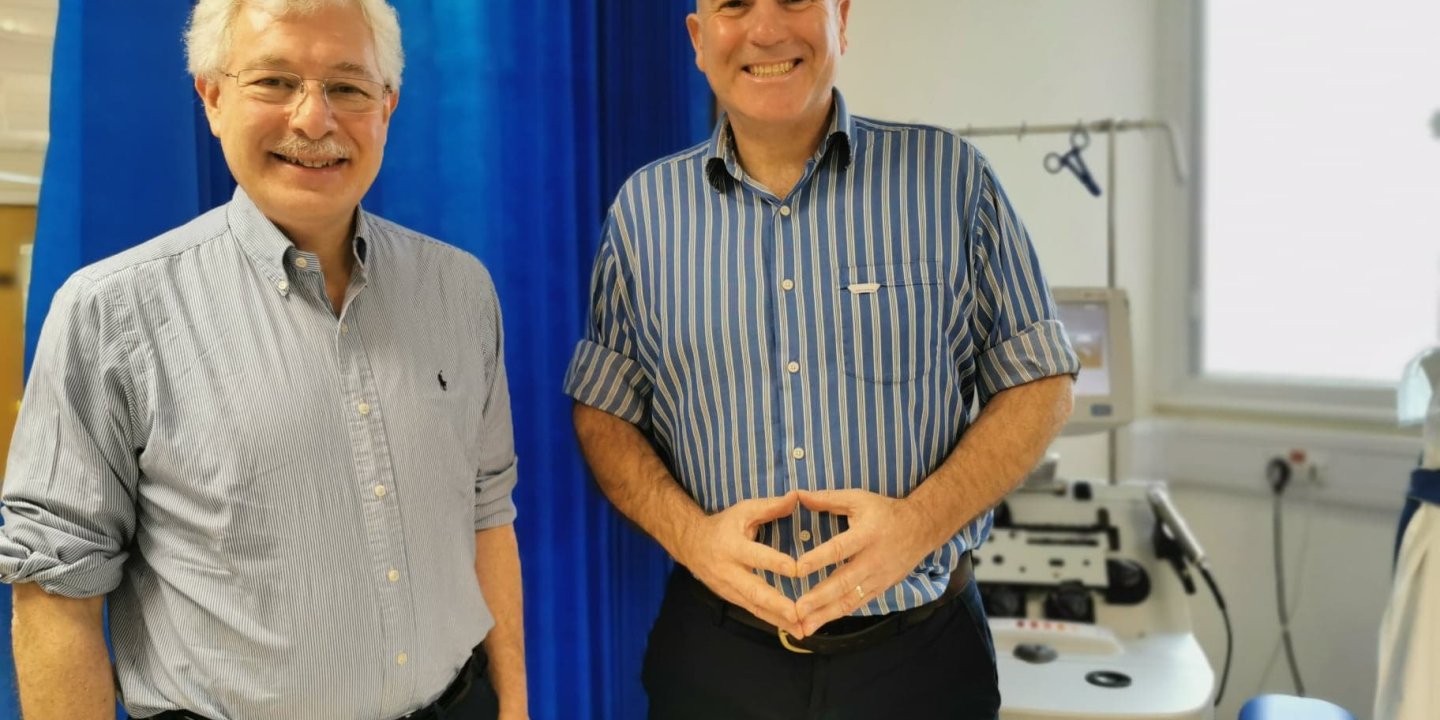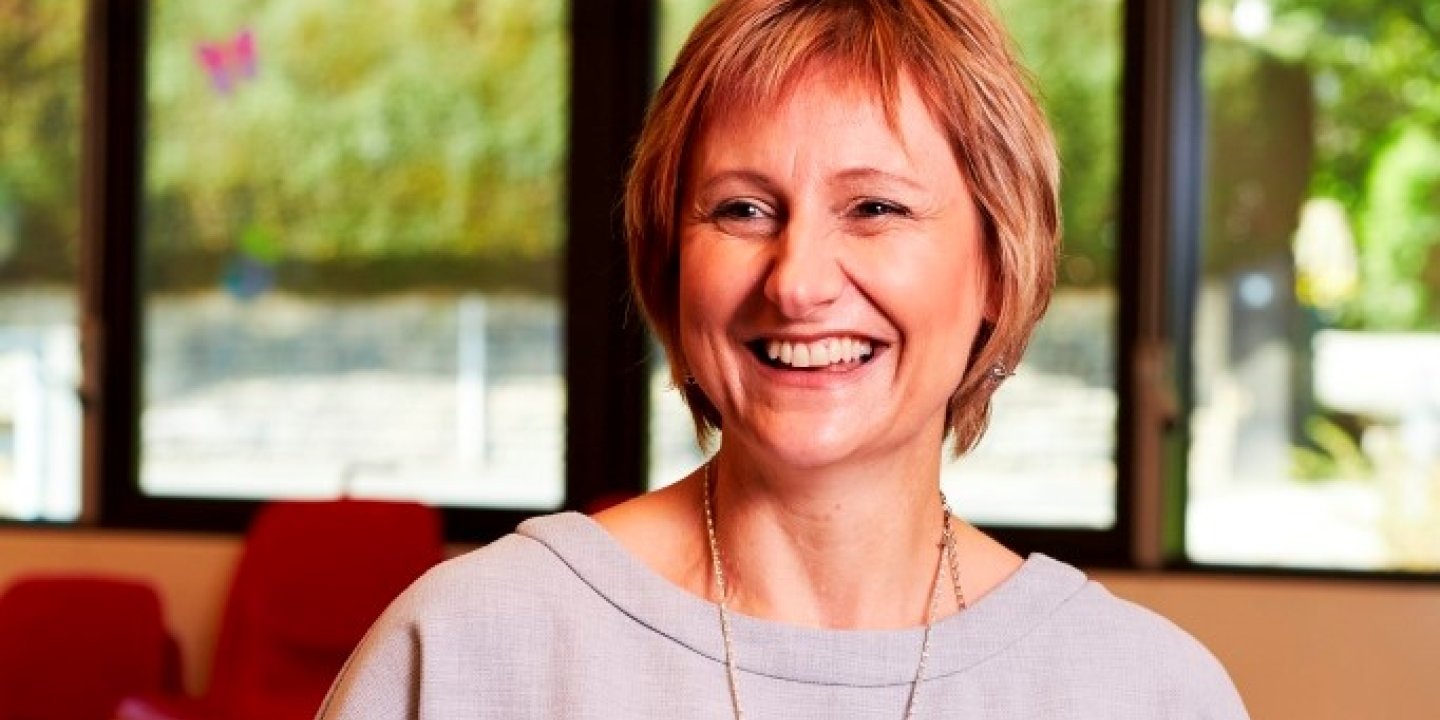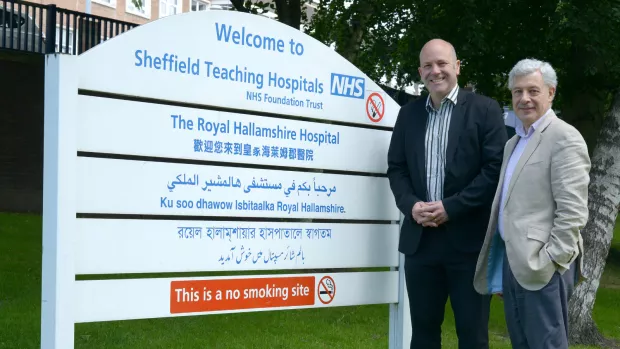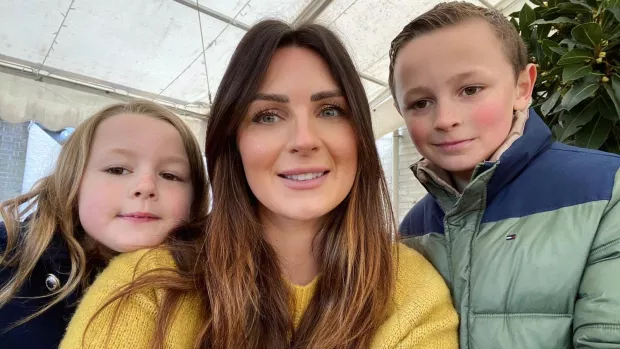
#BehindTheTrials – the people finding the answer to how HSCT compares with other highly effective DMTs
Clinical trials are key to finding treatments for everyone with MS. And although we often focus on the drugs under investigation, it’s the people involved who really make them happen.
In this instalment of our #BehindTheTrials series, we’re meeting some of the people working on the StarMS trial.
StarMS is comparing HSCT (haemotopoietic stem cell transplantation) with other highly effective disease modifying therapies (DMTs) for relapsing MS.

"This is the first national HSCT study"
Basil Sharrack, Principle Investigator
“If you go back 10 years, HSCT wasn’t being talked about by the neurological community. So we were enormously excited when the MIST trial provided good scientific evidence for its effectiveness. It put HSCT on the map, not only for our patients but for neurologists too.
Now with StarMS we should find an answer to how it compares to other really effective treatments. I hope it’ll help make HSCT become more widely available in the UK.
We want to raise the bar, so the most effective treatments are offered to anyone who’ll benefit. Whether that’s HSCT or a drug like ocrelizumab, if you have highly active MS, I believe these treatments shouldn’t be a last resort.
This study won’t answer all the questions we need answers to. It won’t tell us whether it’s effective for progressive MS. So a lot of people feel let down. It’s heart-breaking to tell someone they can’t have this. But this is the first national HSCT study. Perhaps the next step will be a study with progressive MS.”

"People know the risks and are prepared to take on that journey"
Collette Beecher, Patient Representive and PhD student
“I had HSCT myself six years ago. I feel I was extremely lucky. Quite a few of my symptoms disappeared. Other symptoms have remained with me, but the bigger relapses that were affecting my mobility haven’t come back. This has improved my quality of life significantly.
When people are choosing to have HSCT, the fear of their MS progressing is greater than any fear about actually having the treatment. In preparation for receiving HSCT I was able to ask lots of questions to help me make an informed decision, and this was reassuring. So I understood what to expect, knew the risks and was prepared to take on that journey.
I’m so pleased the trial is going to be offered at so many different hospital sites. We’re seeing a real partnership between haematologists and neurologists to push this forward. It's encouraging this trial will expand expertise to deliver HSCT across more UK sites, to increase the number of people this treatment can be offered to.”

